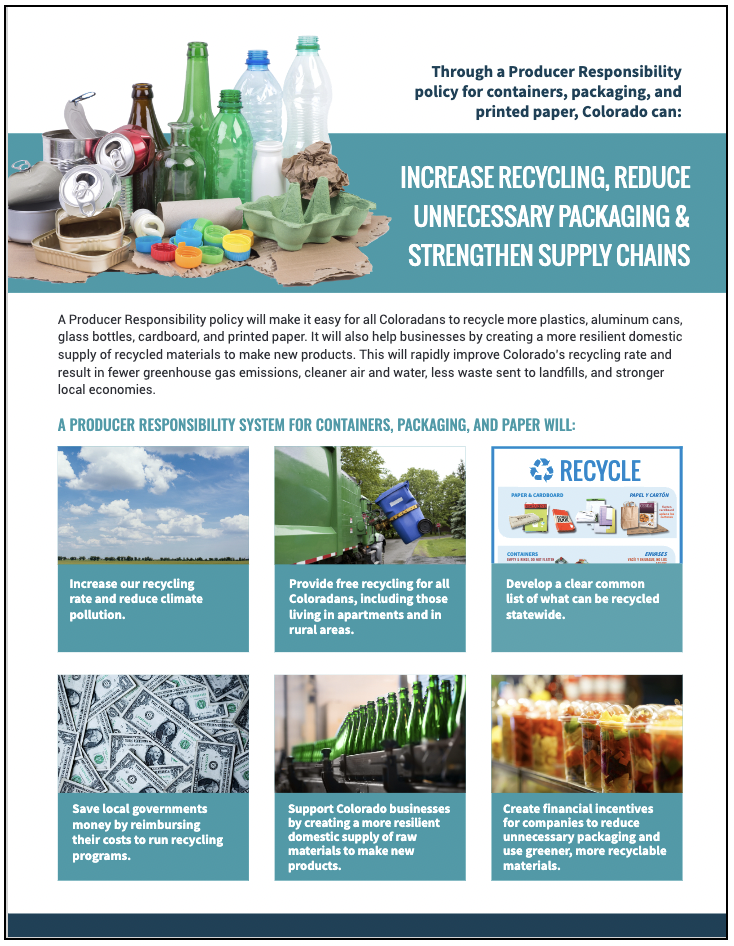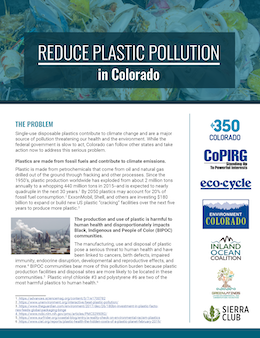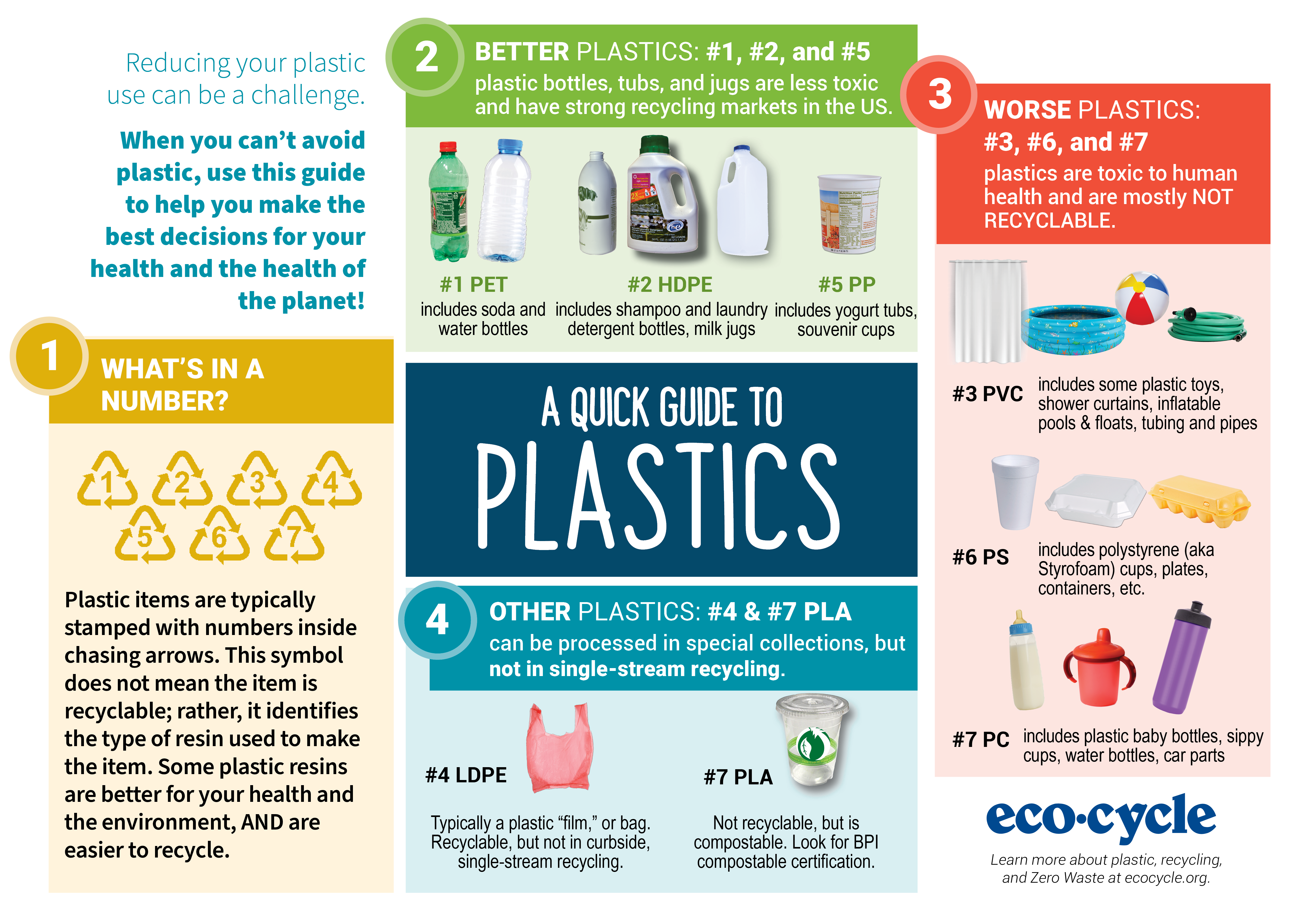We cannot recycle our way out of the plastic pollution crisis. We must begin by eliminating the most problematic plastics.
There is global recognition that recycling alone cannot solve the plastic pollution crisis. Eco-Cycle supports the vision of the New Plastics Economy, developed by the Ellen MacArthur Foundation, that identifies three core strategies to address plastics:
- Eliminate all problematic and unnecessary plastic items.
- Innovate to ensure that the plastics we do need are reusable, recyclable, or compostable.
- Circulate all the plastic items we use to keep them in the economy and out of the environment.
Even when plastics are recyclable, Eco-Cycle encourages you to avoid plastic and single-use packaging as much as possible. That’s because plastic production is on an unsustainable rise—since the 1950s, plastic production has increased from 1.8 million tons in 1950 to 465 million tons in 2018! Simply recycling this packaging does not negate the environmental and social damage done when the resource is extracted or when the plastic is manufactured, both using polluting processes, often disproportionately affecting neighboring lower-income and BIPOC (Black, indigenous, people of color) communities.
When it comes to eliminating plastics, there are steps you as an individual can take to lead a Zero Waste lifestyle, but we will never successfully combat the pollution and climate impacts of plastic without policies that drive larger systemic change. That’s why we support bans and fees on single-use plastics such as plastic bags, polystyrene (Styrofoam) food containers, plastic utensils, and more. Eco-Cycle is proud to have championed the Plastic Pollution Reduction Act in Colorado in 2021 that successfully instituted:
- A ban on polystyrene (aka Styrofoam) take-out food and beverage containers.
- A ban on single-use plastic carry-out bags (and a fee on paper bags to encourage reusable bags). Small businesses would be exempt from the ban on single-use plastic bags, but the ban would still apply to large grocery and retail stores.
- A strike on a 1989 law that prevents local communities from regulating plastics and managing their own plastic pollution.
Prior to this statewide legislation, Eco-Cycle successfully helped to pass plastic bag fees and bans in four Colorado cities—Boulder, Denver, Louisville, and Fort Collins.
Which plastics are problematic or unnecessary?
The UK has targeted eight unnecessary plastics to immediately phase out, including:
- Disposable plastic cutlery
- All polystyrene packaging
- Cotton buds with plastic stems
- Plastic stirrers
- Plastic straws
- Oxo-degradables that break down to create microplastics
- PVC (#3) packaging
- Disposable plastic plates and bowls
Many of these plastics are already targets of local, state, or national bans or fees in other countries to reduce their use.
In addition to eliminating these packaging formats, Eco-Cycle also advocates to eliminate #3 (PVC), #6 (PS), and #7 (PC or “other,” but this does NOT include #7-PLA plastic, which is plant-based and compostable at some industrial facilities) plastic resins in plastic packaging. As one of the founding members of the Alliance of Mission-Based Recyclers (AMBR), Eco-Cycle is working on local and national levels to reduce the production of plastics made with these resins.



























